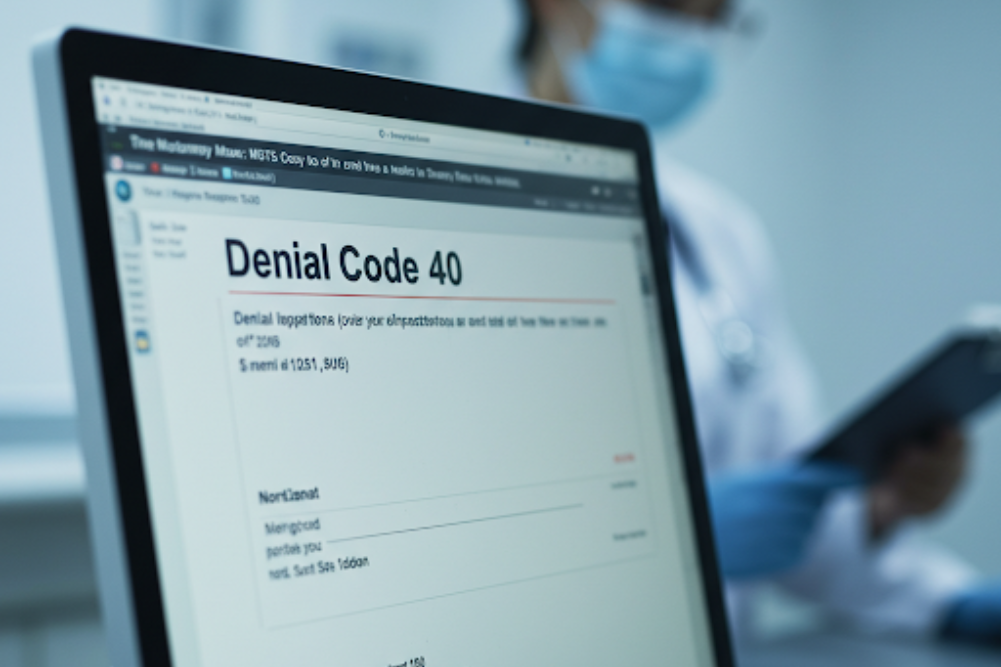Denial Code 40 (“Charges do not meet qualifications for emergent/urgent care”) is a major revenue cycle challenge for healthcare providers, practice managers, and facility owners. High denial rates disrupt cash flow, increase administrative burdens, and delay reimbursements. Understanding why these denials happen and how to prevent them can significantly improve your revenue cycle management (RCM).
What Causes Denial Code 40?
Denial Code 40 typically results from several key factors:
- Lack of Medical Necessity – The claim does not demonstrate the need for emergent or urgent care.
- Payer-Specific Exclusions – Certain treatments may be deemed experimental or not covered.
- Coding Errors – Incorrect or incomplete coding leads to claim rejections.
- Insufficient Documentation – Missing or vague medical records make it difficult to justify the urgency of care.
- Failure to Follow Payer Guidelines – Each payer has specific requirements for emergent care billing.
- Prior Authorization Issues – Some payers require pre-approval, even for urgent care services.
Common Billing and Coding Mistakes
Errors in billing and coding significantly contribute to denial rates. The most frequent mistakes include:
- Incorrect Code Selection – Using codes that don’t align with the level of care provided.
- Lack of Supporting Documentation – Failing to document the urgency and necessity of services.
- Ignoring Payer-Specific Rules – Neglecting to verify guidelines before submitting claims.
Proven Strategies to Minimize Denials
Implementing a strategic approach can reduce denials and enhance cash flow. Here’s how:
1. Optimize Documentation
Ensure all medical records include clear, detailed notes on the patient’s symptoms, condition, and treatment plan. Documentation should support the urgency of care provided.
2. Improve Coding Accuracy
Use up-to-date coding practices to represent the services rendered correctly. Conduct regular training for your billing team to minimize errors.
3. Adhere to Payer Guidelines
Stay informed about the unique requirements of each payer to avoid unnecessary denials. Regularly review payer policies to remain compliant.
4. Secure Prior Authorization When Needed
If a payer mandates prior authorization, ensure that the necessary approvals are obtained before services are provided.
5. Conduct Regular Audits
Perform routine internal audits to catch billing and coding mistakes early. Address any recurring issues to prevent future denials.
6. Communicate Effectively with Payers
Establish open communication channels with payers to resolve claim issues promptly. Clarify any ambiguities regarding claim requirements.
7. Strengthen Your Appeal Process
Develop a solid appeal strategy to challenge unjustified denials. Provide comprehensive supporting documentation to back up your claims.
8. Leverage Advanced RCM Technology
Use revenue cycle management software to automate claim submissions, track denials, and enhance accuracy in billing and coding.
Partner with Claims Med to Maximize Reimbursements
At Claims Med, we specialize in revenue cycle management solutions that help healthcare providers reduce denials, streamline billing, and optimize financial performance. Contact us today to discover how we can help your practice overcome Denial Code 40 challenges and improve your bottom line.

